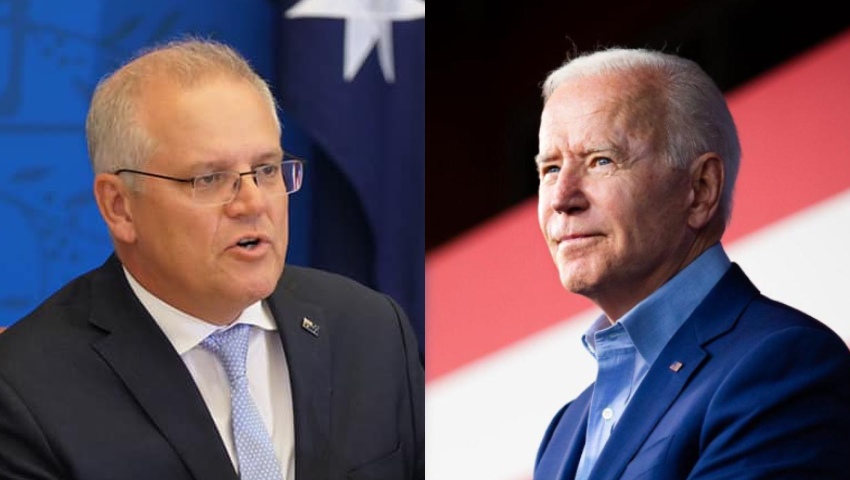Susannah Paton from the United States Studies Centre, examines the changing attitudes of Australia’s regional counterparts towards the alliance with the US.
To continue reading the rest of this article, please log in.
Create free account to get unlimited news articles and more!
Debate over the cost and benefits of the Australia-US alliance has rekindled in lieu of the 70th anniversary of the ANZUS Treaty.
Some observers continue to contend that Canberra’s long-standing relationship with Washington has hindered attempts to strengthen ties with regional neighbours, some of which are wary of a strong US presence in the Asia-Pacific region.
However, according to Susannah Paton, research fellow, foreign policy and defence, at the United States Studies Centre, attitudes towards the alliance are changing.
Paton argues that Australia’s south-east Asian neighbours have “quietly” accepted, and in some cases, welcomed the US alliance.
“Australia’s ties with south-east Asia are different today, a good news story that has been missed in the fury of a foreign policy debate centred on China,” she writes.
“As Frances Adamson observed when she retired as Department of Foreign Affairs secretary, regional perceptions of Australia have shifted, leading to deeper discussions and willingness to work together.
“Much of this shift is due to the laying to rest of outdated perceptions about Australia’s ties with the United States.”
The research fellow points to two main points of contention among Australia’s smaller neighbours in recent years — Australia’s US-centric foreign policy agenda, and perceptions that they were target of the national security posture.
“Today these concerns have eased,” Paton continues.
“When in 2011 Julia Gillard announced the troop rotation of US Marines in Darwin, Indonesia’s initial reaction was not positive. But Jakarta’s views later became more favourable: when president Yudhoyono visited Australia in 2012, he expressed willingness to work with Australian and the US on disaster relief.
“This more positive approach has largely prevailed since. Indonesia and the Philippines welcomed Canberra’s 2020 Defence Strategic Update, even though it declared Australia’s intention to lead ‘coalition operations where it is in the interests of the region’ and to acquire longer-range strike weapons systems.”
A key factor in this shift in attitudes, Paton explains, is the growing threat posed by an increasingly aggressive China.
“They understand that our defence policies are geared towards managing threats from China, not from within our immediate region,” she notes.
“China’s very obviously growing assertiveness has also made most countries in our region more welcoming of a US presence.
“This does not mean their relationships with the US are like Australia’s. Apart from Singapore, none affords the US reliable military access. And all our neighbours will remain far more ambivalent about America’s regional role than we are.”
Addressing another contention previously held by regional neighbours, Paton points out that the Australia-US alliance “no longer stands apart from the region” but instead acknowledges the importance of regional engagement.
“The alliance now sits alongside co-operation with Japan and India in the Quad, trilateral ties with Japan, and many other relationships with partners such as Singapore, Indonesia, and Vietnam,” she notes.
“This network means our bilateral alliance is more integrated into regional arrangements.”
According to Paton, despite changing perceptions, Beijing will continue to fuel suspicion of the Australia-US alliance.
“China seeks to exploit such perceptions – arguing that Australia is beholden to US interests. This should not surprise us, as weakening the US alliance system is an objective of Chinese foreign policy,” she says.
“But fortunately, China’s efforts to discredit Australia are not gaining traction in the rest of Asia.”
Paton goes on to cite remarks from former prime minister Paul Keating in the mid-1990s, who advocated “security in Asia, not from Asia”.
The analyst concludes that this principle is “as relevant as ever”, with Asia “now home to an aspiring new hegemon”.
“For Australia, there can be no security in Asia without the United States,” Paton argues.
“Increasingly, our partners in Asia agree, but we should not take this convergence for granted.
“Deeper strategic dialogue and more high-level contact would lower the risk of returning to rocky regional ties.”
Get involved with the discussion and let us know your thoughts on Australia’s future role and position in the Indo-Pacific region and what you would like to see from Australia's political leaders in terms of partisan and bipartisan agenda setting in the comments section below, or get in touch with

 Login
Login







